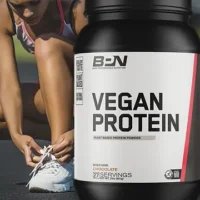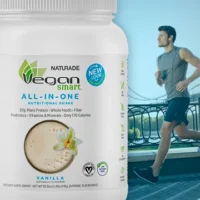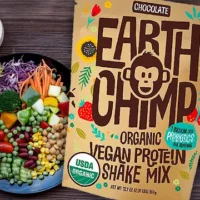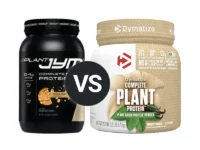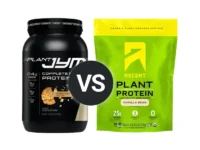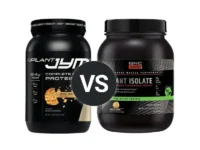Knowledge BaseYou're Questions Answered
BACK
What is in vegan protein powder?
Vegan protein powder is a plant-based dietary supplement designed to offer an alternative to animal-derived proteins. It's made from various plant sources, each bringing unique nutritional benefits to the mix.
Common Ingredients in Vegan Protein Powders
- Pea Protein: Derived from yellow split peas, this protein is a favorite in vegan protein blends for its high protein content and excellent digestibility. It is rich in essential amino acids like lysine and arginine1.
- Rice Protein: Made from brown rice, this protein is often used in combination with pea protein to achieve a complete amino acid profile. It is hypoallergenic and easy on the stomach2.
- Hemp Protein: Hemp seeds provide a protein that is not only rich in essential amino acids but also omega-3 and omega-6 fatty acids, contributing to cardiovascular health3.
- Soy Protein: Soy protein isolate is a complete protein, meaning it contains all essential amino acids necessary for human nutrition. It’s also beneficial for heart health due to its low fat and cholesterol content4.
- Other Plant-Based Proteins: Additional sources such as quinoa, sunflower seed, and chia protein can also be found in vegan protein powders. These ingredients add diversity in texture and flavor, as well as nutritional benefits like fiber and minerals.
In addition to these protein sources, vegan protein powders may contain:
- Flavorings and Sweeteners: Natural flavorings such as vanilla or chocolate, and sweeteners like stevia or monk fruit are often added to improve taste.
- Thickeners and Emulsifiers: Ingredients like xanthan gum or lecithin are used to improve texture and mixability.
- Vitamins and Minerals: Some brands fortify their powders with additional nutrients to enhance the vitamin and mineral content, supporting overall health.
When choosing a vegan protein powder, it’s important to look for products with minimal additives and artificial ingredients to maximize health benefits. It's also advisable to check for third-party certifications such as Non-GMO, organic, or allergen-free to ensure product quality and safety.
Was this answer helpful? Let us know!
Like
References:
- O’Kane, F. E., Happe, R. P., & Vereijken, J. M. (2016). Pea proteins: Processing, extraction, application and functional properties. Progress in Biotechnology, 34, 25-46.
- Babault, N., Païzis, C., Deley, G., Guérin-Deremaux, L., Saniez, M. H., Lefranc-Millot, C., & Allaert, F. A. (2015). Pea proteins oral supplementation promotes muscle thickness gains during resistance training: A double-blind, randomized, Placebo-controlled clinical trial vs. Whey protein. Journal of the International Society of Sports Nutrition, 12(1), 3.
- Callaway, J. C. (2004). Hempseed as a nutritional resource: An overview. Euphytica, 140(1-2), 65-72.
- Messina, M. (1999). Legumes and soybeans: overview of their nutritional profiles and health effects. The American Journal of Clinical Nutrition, 70(3 Suppl), 439S-450S.
Add to this Answer
Related Questions
Related Reviews
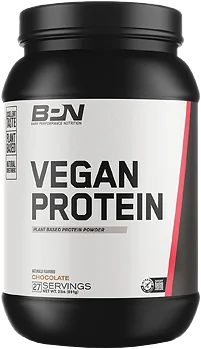
Disclosure
Your Answer
Do you have a suggestion to improve the answer? Please detail your suggestions and provide any references to information that may support your answer if available.
The content on this site has not been written, reviewed or endorsed by a medical professional. We assume no liability for the misuse of supplements and recommend you review the label of any product, as well as consulting with your health care professional.
We are a participant in the Amazon Services LLC Associates Program, an affiliate advertising program designed to provide a means for us to earn fees by linking to Amazon.com and affiliated sites.
We are a participant in the Amazon Services LLC Associates Program, an affiliate advertising program designed to provide a means for us to earn fees by linking to Amazon.com and affiliated sites.
© 2025 ProteinPowder.com

